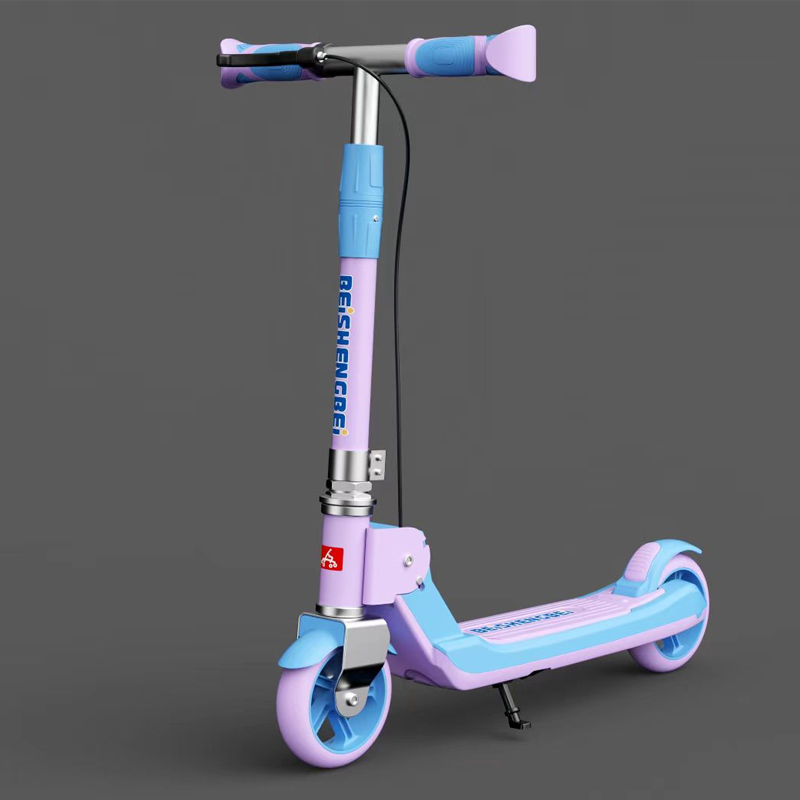The Weight of a Kid's Scooter What Parents Need to Know
When it comes to choosing the right scooter for your child, one of the most frequently asked questions is, How much does a kid's scooter weigh? Understanding the weight of a scooter is crucial for ensuring that it is suitable for your child's age, size, and ability. In this article, we will explore the typical weight range of kids' scooters, factors influencing scooter weight, and why weight matters when shopping for the right scooter.
Typical Weight Range of Kids' Scooters
Kids' scooters come in various models and sizes, catering to different age groups and preferences. Generally, the weight of a kid's scooter typically ranges from 3 to 10 pounds (1.4 to 4.5 kg). For younger and smaller children, you might find scooters that weigh as little as 3 to 6 pounds (1.4 to 2.7 kg). These lightweight options are easier for kids to handle and maneuver, promoting independence and confidence while riding.
On the other hand, scooters designed for older children or those made from sturdier materials can weigh between 7 to 10 pounds (3.2 to 4.5 kg). While these scooters may be slightly heavier, they often come with enhanced stability and durability, making them suitable for more adventurous rides.
Factors Influencing Scooter Weight
Several factors contribute to the overall weight of a kid's scooter
1. Materials The materials used in construction significantly impact the scooter's weight. Aluminum scooters tend to be lighter than those made from steel or heavier plastics. Lightweight materials often enhance the portability of the scooter, making it easier for kids to carry or maneuver.
2. Design The design of the scooter, including its deck size and wheel size, can also affect weight. For example, scooters with larger wheels may weigh more due to the additional material used. However, larger wheels often provide a smoother ride over bumps and uneven surfaces, which may be worth the extra weight.
lehuo how much does a kid scooter weigh

3. Features Scooters equipped with extra features, such as LED lights, adjustable handlebars, or folding mechanisms, can also weigh more. While these features can enhance safety and convenience, it is essential to balance them with the scooter's overall weight.
Why Weight Matters
Understanding scooter weight is important for various reasons
1. Safety A kid's ability to handle and control a scooter safely is directly influenced by the scooter's weight. Heavier scooters may be more challenging for younger children to manage, increasing the risk of accidents or falls. It’s crucial to choose a scooter that your child can easily lift, steer, and stop.
2. Portability If you plan to travel with the scooter or transport it frequently, a lighter model may be preferable. Kids often love to take their scooters on trips to the park or the beach, but lugging around a heavier scooter can become burdensome.
3. Growth As children grow, their strength and coordination improve. While you may start with a lighter scooter, you might want to consider getting a heavier, more advanced model as your child gains confidence and becomes more proficient at riding.
Conclusion
In summary, understanding how much a kids' scooter weighs is an essential consideration for parents. With a typical weight range between 3 to 10 pounds, factors like materials, design, and additional features can greatly influence the scooter's overall weight. Prioritizing safety, portability, and your child's growth when selecting the right scooter will help ensure a positive riding experience. By doing your research and choosing wisely, you can provide your child with a fun and enjoyable way to explore their surroundings on two wheels.
-

 Scoot&RideKids Child Kick Push Scooter 3 Wheels with LED Flashing Tilt Lean Boys Girls Scooter
Scoot&RideKids Child Kick Push Scooter 3 Wheels with LED Flashing Tilt Lean Boys Girls Scooter




- 4
$33.17 -

 Scoot&RideKids Scooter Child Kick Flashing LED Light Up 3 Wheel Push Adjustable Folding 3
Scoot&RideKids Scooter Child Kick Flashing LED Light Up 3 Wheel Push Adjustable Folding 3- 0
$25.52 -

 Scoot&RideKids Scooter Child Kick Flashing LED Light Up 3 Wheel Push Adjustable Folding 2
Scoot&RideKids Scooter Child Kick Flashing LED Light Up 3 Wheel Push Adjustable Folding 2- 0
$33.17 -

 Scoot&RideKids Scooter Teens Foldable Kick Push Scooter Adjustable Height Safe 2 Wheels
Scoot&RideKids Scooter Teens Foldable Kick Push Scooter Adjustable Height Safe 2 Wheels




- 4
$49.99
Meet our partners and discover what powers their creativity!
When you register for a Lohas scooter, you will receive a 10% discount on your first order and can be notified of sales, new product launches and other offers in advance.









